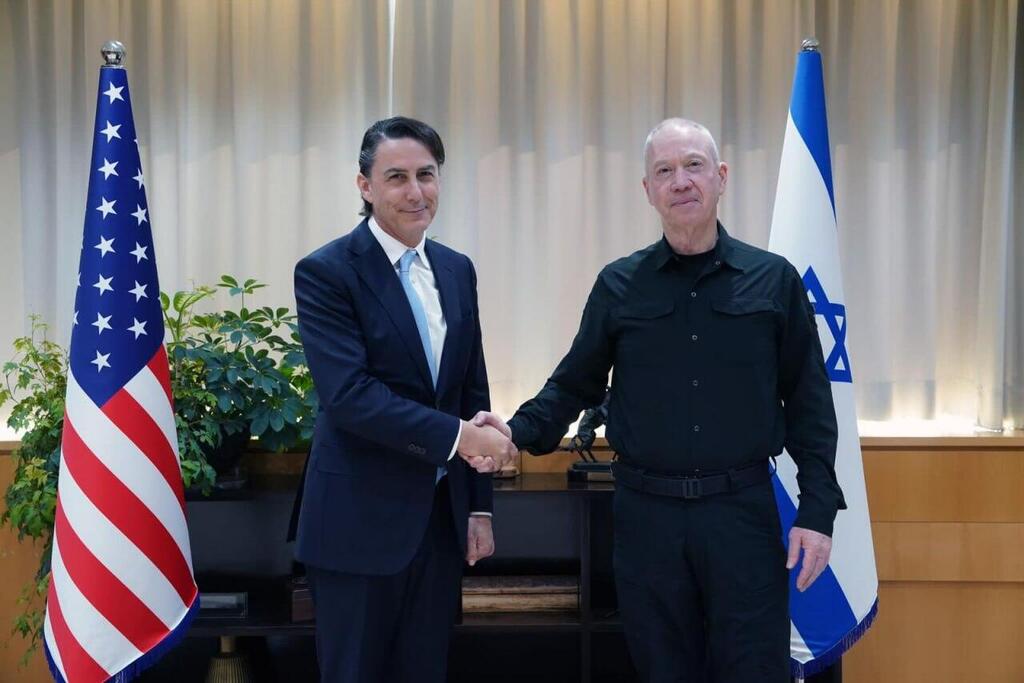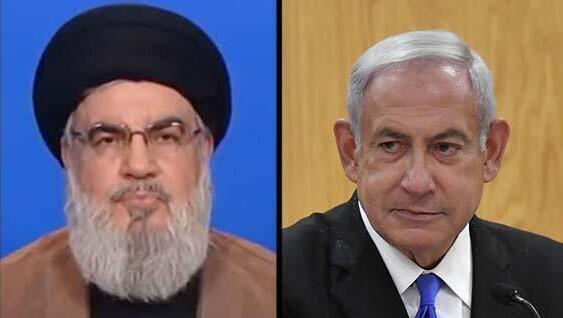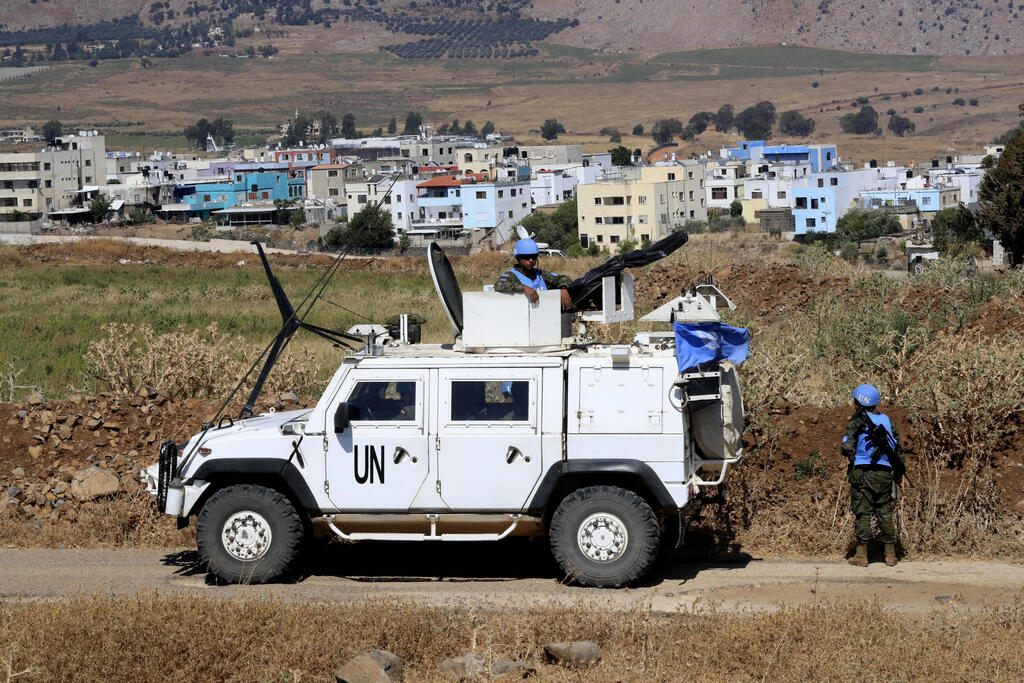Getting your Trinity Audio player ready...
When it comes to the Israeli-Lebanese border, there are multiple points of contention that are being discussed by officials who have made their way to the region in recent times, doing all they can to avoid the kind of escalation that could bring about all-out war, a scenario both countries, as well as Hezbollah, are hoping to steer clear of.
Read more:
Amos Hochstein, Deputy Assistant to the President Biden, was informed that as much as Israel is striving for a diplomatic solution, it is equally committed to taking military action to distance Hezbollah forces north of the Litani river.
The Lebanese position, shared with Hezbollah, is that no negotiations would take place until Israel's military campaign in Gaza concludes. The Iran-backed group's leader, Hassan Nasrallah himself made the same point during a televised speech on Friday.
Lebanon contends there are 13 different points along the Blue Line, - the current Israel-Lebanon border, perceived by Beirut as sovereign Lebanese territory that is currently being held by Israel and are to be resolved in future negotiations. "We face a historic opportunity to liberate our lands and prevent the enemy from invading our borders and our airspace," Nasrallah said in his speech.
Those 13 points are all along the border, from the Rosh Hanikra lookout and eastward, all the way to the area between the Israeli town of Metula and the Lebanese village of Al-Wazzani.
One of the main point Hochstein is sure to reference is the Land Terminus point, known as B1. This border point marks the final land connection between Israel and Lebanon in the western sector along the Mediterranean Sea. Lebanon seeks Israel's withdrawal from this strategically significant area, as it holds both geographical and military importance. Moreover, this point also determines the maritime border between the two countries.
Another point of contention is Ghajar, also Rhadjar, an Alawite-Arab village on the Hasbani River. While technically split in half, Israel currently controls all of it, and part of Hochstein's assignment would be dedicated to laying the ground work to convince Israel to surrender its northern section to the Lebanese.
3 View gallery


Amos Hochstein after a meeting with Defense Minister Yoav Gallant
(Photo: Ariel Hermoni, Defense Ministry)
And then there's Mount Dov, also known as the Sheba Farms, where exchanges of fire have already taken place. It's located north of the village of Majdal-Shams and its elevation makes it a valuable strategic point. Lebanon claims it is part of its sovereign territory. Israel, naturally, has a different perspective.
Dorothy Shea, former US ambassador to Lebanon, said recent talks between delegations of the two nations has concluded in an agreement regarding 7 of the 13 points of contention, this according to Asharq Al-Awsat, an Arabic international newspaper based in London.
A thorn named Hezbollah
However, those 13 points are not the only problem. To ensure the safety of its citizens in the north, Israel demands Hezbollah forces remain north of the Litani river, thus allowing enough distance to ensure residents of Kiryat Shmona, Shtula, Misgav Am and many other communities that they would not fall victim to an attack similar to the one carried out by Hamas in the south, or be subjected to rocket fire. Hezbollah rejects that demand.
A senior member of the Lebanese armed forces told al-Akhbar last month that "members of Hezbollah are the legitimate landowners in southern Lebanon and thus will not be dislocated from the homes and lands."
3 View gallery


Nasrallah and Netanyahu still miles apart regarding the Litani river
(Photo: Reuters, Yoav Dudkevitch )
Hochstein is fully aware of how far apart the Israeli and Hezbollah positions are, which is why he did not bring it up during the last round of negotiations. Conventional thinking states he's interested in first allowing the 13 points to be settled and only then to address the Israel-Hezbollah disagreement, when it will prove too costly for either side to remain entrenched in their "all or nothing" approach.
Additionally, Lebanon is demanding Israel ceases all incursions into its territory, whether by sea, air or land. Many of Israel's strikes against Syria go over Lebanese airspace. Lebanon maintains Israel is guilty of repeatedly violating Resolution 1701 by attacking Lebanon. The resolution "calls for the full cessation of hostilities, the deployment of Lebanese forces to Southern Lebanon, parallel withdrawal of Israeli forces behind the Blue Line, strengthening the UN force (UNIFIL) to facilitate the entry of Lebanese Forces in the region and the establishment of a demilitarized zone between the Blue Line and the Litani River."
Another matter placing obstacles on the road to an agreement is Lebanon's dire financial and political situation. There is currently no president in place, after Michel Aoun left office in 2022. Without an office holder, Lebanon is deemed to be insufficiently prepared to discuss broad agreements.




